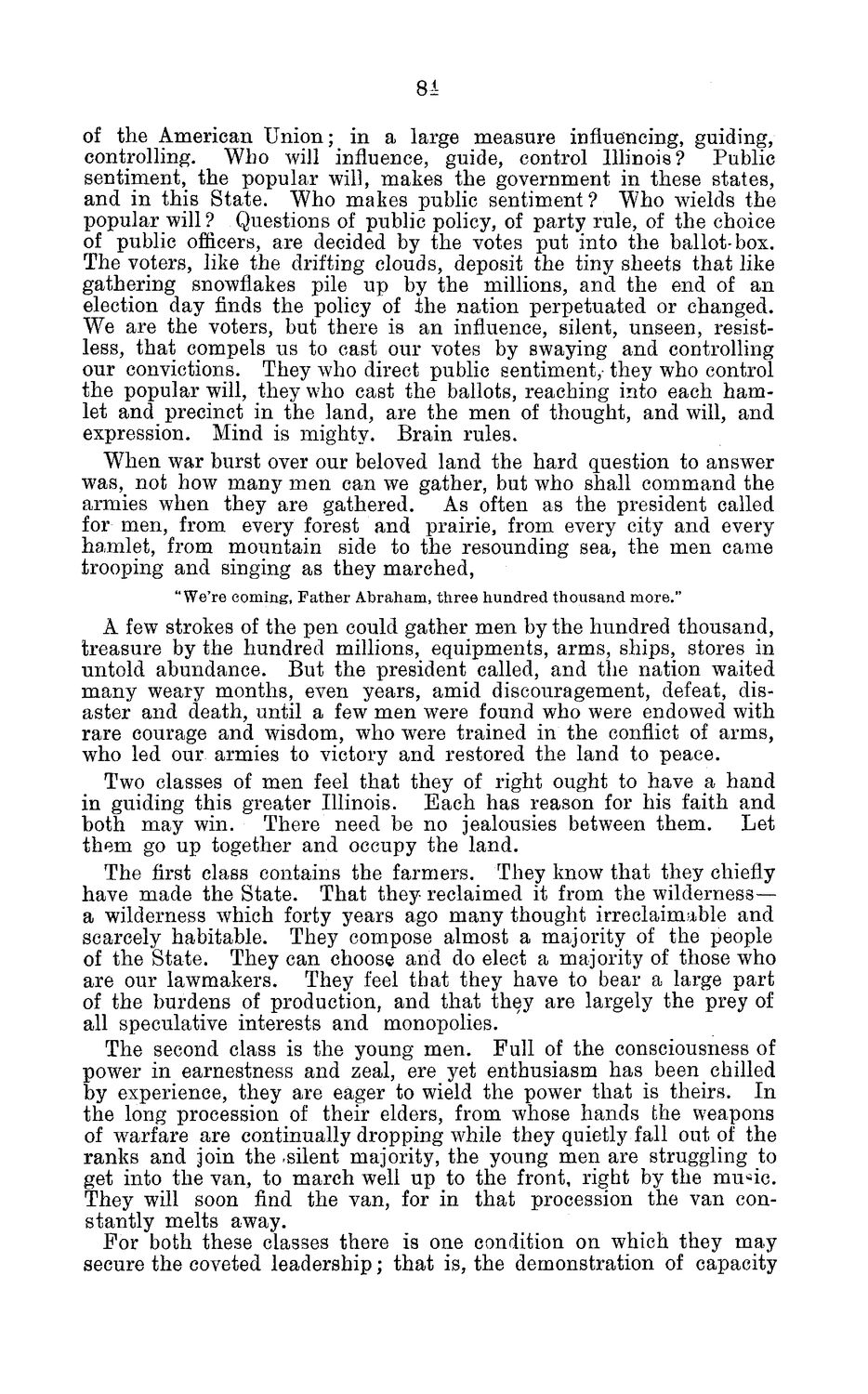| |
| |
Caption: Board of Trustees Minutes - 1884
This is a reduced-resolution page image for fast online browsing.

EXTRACTED TEXT FROM PAGE:
8i of the American Union; in a large measure influencing, guiding, controlling. Who will influence, guide, control Illinois? Public sentiment, the popular will, makes the government in these states, and in this State. Who makes public sentiment? Who wields the popular will ? Questions of public policy, of party rule, of the choice of public officers, are decided by the votes put into the ballot-box. The voters, like the drifting clouds, deposit the tiny sheets that like gathering snowflakes pile up by the millions, and the end of an election day finds the policy of ihe nation perpetuated or changed. We are the voters, but there is an influence, silent, unseen, resistless, that compels us to cast our votes by swaying and controlling our convictions. They who direct public sentiment, they who control the popular will, they who cast the ballots, reaching into each hamlet and precinct in the land, are the men of thought, and will, and expression. Mind is mighty. Brain rules. When war burst over our beloved land the hard question to answer was, not how many men can we gather, but who shall command the armies when they are gathered. As often as the president called for men, from every forest and prairie, from every city and every hamlet, from mountain side to the resounding sea, the men came trooping and singing as they marched, "We're coming, Father Abraham, three hundred thousand more." A few strokes of the pen could gather men by the hundred thousand, treasure by the hundred millions, equipments, arms, ships, stores in untold abundance. But the president called, and the nation waited many weary months, even years, amid discouragement, defeat, disaster and death, until a few men were found who were endowed with rare courage and wisdom, who were trained in the conflict of arms, who led our armies to victory and restored the land to peace. Two classes of men feel that they of right ought to have a hand in guiding this greater Illinois. Each has reason for his faith and both may win. There need be no jealousies between them. Let them go up together and occupy the land. The first class contains the farmers. They know that they chiefly have made the State. That they reclaimed it from the wilderness— a wilderness which forty years ago many thought irreclaimable and scarcely habitable. They compose almost a majority of the people of the State. They can choose and do elect a majority of those who are our lawmakers. They feel that they have to bear a large part of the burdens of production, and that they are largely the prey of all speculative interests and monopolies. The second class is the young men. Full of the consciousness of power in earnestness and zeal, ere yet enthusiasm has been chilled by experience, they are eager to wield the power that is theirs. In the long procession of their elders, from whose hands the weapons of warfare are continually dropping while they quietly fall out of the ranks and join the -silent majority, the young men are struggling to get into the van, to march well up to the front, right by the mu^ic. They will soon find the van, for in that procession the van constantly melts away. For both these classes there is one condition on which they may secure the coveted leadership; that is, the demonstration of capacity
| |